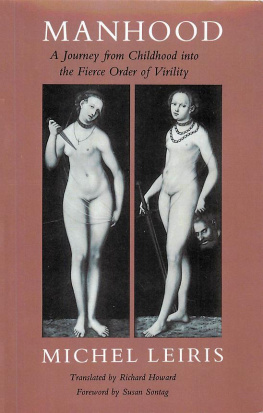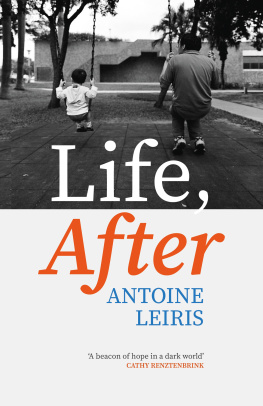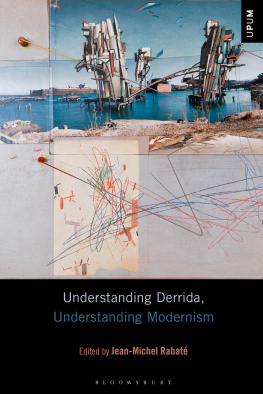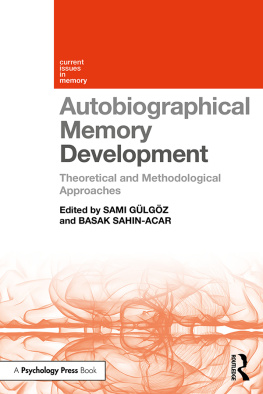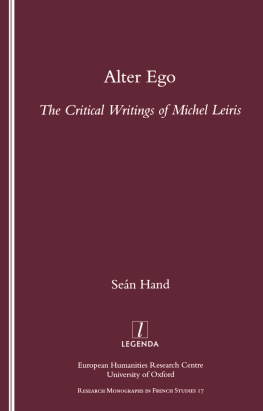SCRAPS
THE RULES OF THE GAME
VOLUME 2
SCRAPS
MICH! IIIIIS
TRANSLATED FROM THE FRENCH BY
Lydia Davis

The Margellos World. Republic of Letters is dedicated to making literary works from around the globe available in English through translation. It brings to the English-speaking world the work of leading poets, novelists, essayists, philosophers, and playwrights from Europe, Latin America, Africa, Asia, and the Middle East to stimulate international discourse and creative exchange.
English translation first published in the United States by The Johns Hopkins University Press, copyright 1997; this edition published by Yale University Press, 2017.
Originally published in French as La Rgle du jeu II: Fourbis, copyright 1955 Editions Gallimard.
All rights reserved. This book may not be reproduced, in whole or in part, including illustrations, in any form (beyond that copying permitted by Sections 107 and 108 of the U.S. Copyright Law and except by reviewers for the public press), without written permission from the publishers.
Yale University Press books may be purchased in quantity for educational, business, or promotional use. For information, please e-mail sales.press@yale.edu (U.S. office) or sales@yaleup.co.uk (U.K. office).
Printed in the United States of America.
Library of Congress Control Number: 2016951993
ISBN 978-0-300-21238-9 (pbk.: alk. paper)
A catalogue record for this book is available from the British Library. This paper meets the requirements of ANSI/NISO 239.48-1992 (Permanence of Paper).
10 9 8 7 6 5 4 3 2 1
CONTENTS
MORS
Curtain of clouds.
I always reacted strongly to these wordswhich evoked a theatrical space enlarged to the proportions of infinitywhen I read them in a libretto, where they indicated the caesura between two scenes, of a work by Wagner or any other musician who chose, as did Nietzsches illustrious friend, to put opera in the service of a mythology. As I resumeearlier, perhaps, than I would have thoughta piece of writing I had decided (for reasons having to do with pessimism, let us say roughly, so as not to come back to this again) to leave dormant for an unspecified length of time, it is this curtain of clouds I think of, the figure of a nebulousness drawn before ones view as though to signify twice over the interruption of duration: first of all as the curtain that it is, of print or almost transparent pieces of gauze superimposed like the panels of a tulle skirt; then, as a vague image suggesting the chaos that is the negation of the temporal and spatial world ruled by our coordinates.
Curtain of clouds. It is thus that the curtain of ones eyelids sometimes appears when, still sleeping, one is already about to wake up. Like a proscenium arch or some other stage hiding place with control pulleys so rusted, dusty, or plastered with cobwebs that to maneuver them a true deus ex machina would be required rather than ordinary stagehands, a shapeless veil continues to cover our consciousness and our sight and at that point, an authentic curtain of cloudsjust as opaque and just as vagueis formed by the sometimes reddish and sometimes darker film with which our eyelids appear to us to be lined inside when we have our eyes closed. The immense force, it seems, that will have to be deployed to move us from the first rough attempt to recover ourselves to a complete mustering, whenafter the three blows struck in some unknown place by the mysterious stage manager who oversees the daily recommencement of the actionthe footlights of what we persisted in concealing of life are no less mysteriously turned on; the anguish, as soon as we are drawn from the dark by this signal, of feeling petrified, restored almost to consciousness but without any control over these inanimate limbs, these scattered bones awaiting some last judgment; the despair, without the attenuation of any outcry, of ever emerging from the mattress of sleep that has become confused with the physical mattressitself thick and fleecyon which the night has lain down with us; the brutal event, finally, wresting us from these pangs when (without our knowing how such a vapor, with its stifling billows, could have dissipated all at once) we find ourselves with our eyes unsealed. The threshold of awakening being, therefore, quite an unpleasant one to cross, each time this return requires that we stay thus lucidly suspended in limbo for an indefinite length of time. An incubation in half-light, an anxious awaiting before the dissipation of the mists or the sudden withdrawal of the curtain as when there comes, for instance, after a period of confusion and torpor, the clear space that causes us to begin writing, impelled also by something that remains foreign even though it is inside us, and required to take a leap which we are never sure will be taken because it depends only partially on our will.
I must, therefore, climb back up. Not only out of this metaphorical gulfthe sleep in which the desire and capacity to write can be buried for limitless durationbut from a much more actual hole: the hole that a book, the moment it has undergone its final transformation of being published, digs in the most intimate part of us, at least when the book in question is (as is the case for the volume that thus became fixed in place behind me early last summer) a work in which one has proposed, not so much to define oneself retrospectively, as to draw up ones inventory and take stock with a view to going beyond oneself. A feeling of emptiness, not only because we have quite precisely emptied ourselves of what was in our heart and mind but because we feel actually that, well or ill received by the many or few people who have employed in reading it a variable part of the leisure time society allocates to them according to the positions they owe to their respective opportunities and the nature of the works to whichby vocation or notthey are constrained to devote themselves, this book will have been, for us, a real gesture in empty space compared to what we had hoped for.
This accumulation of pages, which is today nothing more than the instrument of a disillusionment, had as its avowed aim to make us more vigorously alive (as though such an architecture, for which we had been both laborer and material, should, symmetrically, help in our own reconstruction); but now that this book has appeared, one sees that whether it is good or bad, and even if it should mark a stage in our progress toward a little more light, the only sure thing is that it does not exist orif we make our evaluation without any romantic exaggerationthat its only existence is that of a book that has come to join thousands of other books, probably better than some of them but a book nevertheless and not the quasi-stellar projection of ourselves by which we might have believed that our fate would beas though magicallytransformed.
To have, for a start, attempted to take ones revenge on a life with which one was not satisfied, by seeking in the awareness of this failure an element of success, a basis for achieving in another domain something less insignificant and that this also, since one finds in it only inconsistency in the end, should have failed. To have next wantedstrengthened by this new fiasco as though by a liquidationto try ones luck once more in this life of which, whatever delusion one had managed to entertain, one was certainly not entirely weary and that this new attempt should also end in failure, in the undeniable recognition that there was a decided lack in ones very life. Such is the all-too-real empty spacethe actual hole between two chairsfrom which I must now climb back up.
Next page

